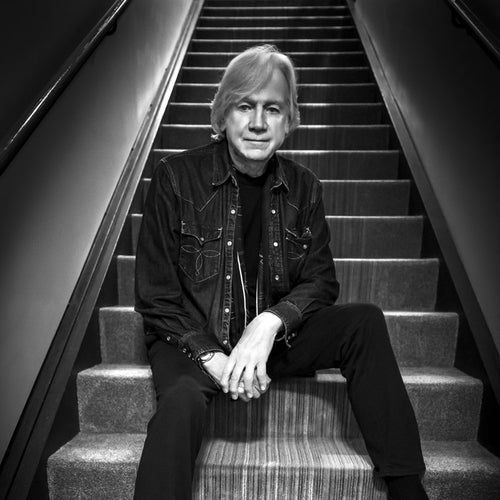
Justin Checks In
I’m still on a tremendous high since the show in Athens at the beginning of our autumn tour. What a wonderful night - the setting at the Herodes Atticus amphitheatre was spectacular and the Athens State Orchestra superb. Many of the orchestra players told me how thrilled they were to play the music they had known and loved in their youth with the original voice out front. I am hugely grateful to all those who put so much effort into making it happen. Nights like this are very special and I shall treasure the experience. The starring role is always the original Peter Knight compositions and orchestrations, and Elliot Davis’s interpretation of them, as well as Elliot’s brilliant score of ‘Question’.
The ‘story’ of those orchestrations is an interesting one. ‘Days Of Future Past’ was recorded in No 1 studio at Decca, 165 Broadhurst Gardens, West Hampstead, North London.
There were three recording studios in the Decca complex - The entrance to no 1 studio was straight in front of you when you entered the building and when you went through the large soundproofing door into the studio you found yourself immediately in the recording space. No 2 studio - smaller, with a ‘Rock and Roll’ type vibe - was downstairs near the canteen, and No 3 studio, where most orchestral recordings were made, was at the back of the building, accessed through a long corridor from the front entrance, or from the mews behind Broadhurst Gardens.
No 1 studio was a large square recording space, generally blue grey in colour with white sound baffles on the walls from about waist height to about 12 feet high. There was a raised stage area the width of the studio opposite the door under the control room, that could be accessed up two flights of stairs from the far-right hand corner (close to the little area that was my recording space - where I played acoustic, electric, and did my vocals on all the tracks we made at Broadhurst Gardens).
The control room had a glass window through which you could see down into the studio. The ‘stage’ area was carpeted, and the blue grey carpet also extended about halfway across the studio floor. The ceiling was so high that to change anything up there they needed scaffolding - there was no way a ladder could safely get there. There were a couple of tall 20-foot high, moveable sound dividers, as well as some shoulder height dividers on wheels that musicians could just about see over, and that made it possible to dampen any spill into the mic of anyone playing near to you.
I was at the studio, on the studio floor for the original orchestra recording session of ‘Days’ (actually, it wasn’t until ‘Lost Chord’ that we in the group felt free to venture into the control room when we felt like it) and it was evident how much respect the players had for Peter Knight. I had been discreetly present at a few orchestra recordings in my time at Decca. Mike and I once sneaked into Decca studio 3 - the largest recording studio in London, to see Mantovani and his orchestra record, as well as doing a couple of sessions as a rhythm guitar player on TV commercials with orchestral players before I joined the Moodies. Respect and good behaviour from orchestral musicians weren’t always the case. Sometimes (thankfully rarely), a player in a full section was clearly not contributing fully, or not actually playing at all. Being on the studio floor when there is an orchestra session is always fascinating and enlightening. But, when the players saw Peter’s name on the ‘DOFP’ score, they knew it was important and that it would be good. No one wanted to take liberties - they quite rightly gave Peter absolute respect.
After only one run through, and after a couple of minor alterations to the score, they made that beautiful, brilliant, and to me, very moving recording of Peter’s music for DOFP, and I considered myself lucky to have been there in the studio witnessing it all. One interesting note is that the studio cat ran across the studio floor towards the end of the take and you can hear a tree bell in the percussion section being knocked over (when Larry Baird was doing a transcription for our early ‘90s orchestra tours he asked me what the ‘out of time crash’ was in the orchestral part after ‘Nights’ and when I told him it that the studio cat was the culprit he wrote it in anyway).
What happened after the session though is a bit of a muddle. Tony Clarke and Derek Varnals mixed the album straight away (our songs had been recorded before the orchestra session and the ‘orchestral sounds’ you hear on our songs are the mellotron) and on the Sunday evening they arranged a playback of the finished album for the group, and our girlfriends, through two giant Tannoy monitor speakers out in the studio.
Sadly, what happened to Peter’s paper charts is a mystery. During the years after the recording, Peter became a family friend and he and I worked together on a few different songs - on ‘Blue Jays’ and on ‘Songwriter’. I asked him a couple of times about the original paper charts and he though they must be somewhere in the shed in the garden, where he worked on all his scores and arrangements. After Peter died, I asked his wife Babs if she had ever seen them and she told me that regretfully they were not among his papers. Would the copyist have kept them for years? Even If they had collected them after the session neither Peter nor his copyist were young men when DOFP was made. Fact was - the score was nowhere to be found. And I don’t believe anyone thought at the time (except maybe Graeme, who always believed) that it would be a commercial hit that might stand the test of time - or that the orchestra parts themselves would be worth keeping.
So, when Eagle Records proposed a live show of the album I suggested Elliot Davis who I had met twice before - first when Elliot produced a radio show about Lionel Bart and then again at the Royal Festival Hall for ‘a Life in Song’ when I was asked to sing for the great Burt Bacharach - Elliot was the musical director for Burt in London, and we become friends.
It was going to be a complicated task but fortunately Elliot has software that enables him to replicate the instruments of the orchestra to check that any written parts will work in the context of a large classical format. So, Elliot came down to the studio in Genoa with Alberto and me to recreate Peter’s score from beginning to end. It took us a while, but thanks to Elliot’s brilliant prepping beforehand, and a couple of weeks hard work, we got it down. None of the other guys in the band came to the studio - I’m not sure anyone else thought it was going to work, but it certainly did. Alan Hewitt made the track that John sings to on ‘Evening Time’ and we slotted that in smoothly.
I knew that our agent Robert Norman had a contact for Jeremy Irons who I felt would be perfect for the narration. I got in touch with Jeremy, and he was up for it. We arranged to meet at Powerhouse studios in Chiswick and Jeremy and I recorded and filmed all the spoken word parts there in a short afternoon session. There was just him, me and an engineer at the studio and it was important to Jeremy that he kept true, in phrasing and breathing, to Mike Pinder’s original performance of Graeme’s poems, so we set up the original record sin the studio so that he could always listen to it for reference.
Alberto Parodi, Elliot and I mapped out the whole ‘live’ set list, literally, on pieces of paper sellotaped together at the studio in Genoa. The one big change to the original running list was something that we in the group had been already playing. We decided, a couple of years before we made the live album, that Graeme’s poem worked better before ‘Nights’ instead of after it in a live setting.
In the group we rehearsed up all the songs with Elliot at a rehearsal room and learnt the ones we had never done live before - ‘Dawn is A Feeling’ and ‘Evening Time’.
The first live performance of Peter and Elliot’s spectacular score of DOFP’ was at the legendary Hollywood Bowl at the opening night of their summer orchestra season in 2017. Like the show in Athens, it was a privilege to be there and to sing and play with players of that stature is an experience that will stay with me always. The orchestra was conducted that night by Thomas Wilkins who I met in a rather serious meeting between our crew and the orchestra directors the afternoon before. I was ‘the band representative’ and I knew we could play our parts well. We had the discipline and confidence to pull it off. Thomas shared my belief and Elliot was with him all the way. It was a beautiful evening under the stars, and a landmark in the history of the group. We found out that it would work!
A few days later we were in Toronto for the performance that would define us - this time with all the final details ironed out and with Elliot conducting what he had so meticulously put together. That performance I believe will stand as the only legitimate live version of this wonderful music.
When I was asked to do the gig in Athens this year I immediately thought of Elliot’s written charts - so I contacted the place where they were stored. They weren’t there! ‘Oh no, not again’ I thought. ‘After all the work Elliot, me and Alberto had put in’. Then it dawned on me what had happened - without me knowing. But - the last chance was Elliot’s software programme! I called him and he still had all the software and the programme. He fired it up, excitedly played me some over the phone, and there it all was. We had all the parts copied out and took them to Athens personally and it gave me and Elliot one the most wonderful nights of our lives.
Justin x
Lots of love and a Happy New Year.
